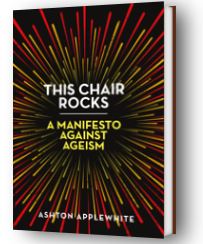
Media coverage of anything aging-related has long been characterized by alarmist hand-wringing, the most egregious example being the gray tsunami metaphor. Coverage of the pandemic is no exception, given that some three quarters of COVID19-related deaths are of people over age 65, many occurring in nursing homes where the virus has run largely unchecked. Typical headlines read, “Ageism on the rise” and “Pandemic making ageism worse!” Don’t make the same mistake.
The pandemic isn’t generating more prejudice, it’s glaringly exposing the ageism and ableism that have been all around us all along. Because ageism is so unexamined, the pandemic is bringing it to many people’s attention for the first time. It’s not ageist and ableist attitudes and behaviors that are on the rise, it’s public awareness and outrage about this type of stigma and discrimination. That’s what’s new and here’s what makes it so exciting: we have a historic opportunity to build on that awareness.
Yes, there’s been awfulness, but there’s also been swift, fierce pushback: against the Telegraph journalist who suggested the virus could benefit the economy by “culling” older Britons; against the Boomer Remover nickname, the handiwork of clueless trolls; against the Texas Lieutenant Governor’s grotesque proposal that grandparents sacrifice themselves for the good of the economy. Supporting this kind of grassroots activism means framing the pandemic, in all its terror and uncertainty, as an unprecedented opportunity to join forces across age, race, and class and create a more equitable post-pandemic society.
By Ashton Applewhite
 Learn more by reading This Chair Rocks, by Ashton Applewhite.
Learn more by reading This Chair Rocks, by Ashton Applewhite.
(Click the book for purchase information.)


